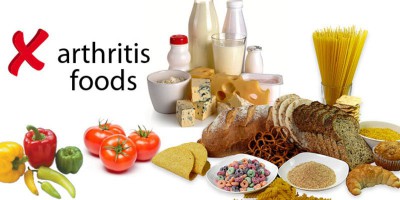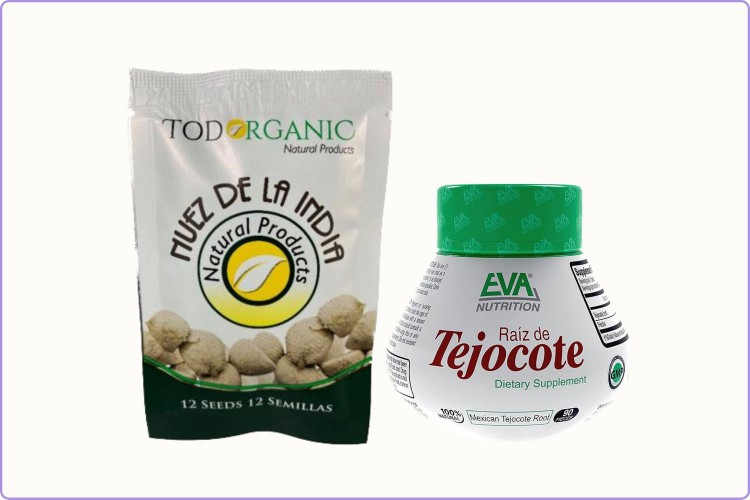
Millions of people all around the world have Arthritis. Inflammation and soreness in the joints characterize this condition and can hinder normal functioning. Even while Arthritis has no known cure, its symptoms can be greatly reduced by treatment. Some foods can cause inflammation and worsen arthritis symptoms, so watching what you eat is one method to treat the condition. Arthritis comes in several forms and can affect every joint in the body. Inflammation of the joints is a common symptom, despite their varied root causes, across all these disorders. To better control their symptoms, patients with Arthritis should avoid eating foods that can cause inflammation in the body.
Refined sugars are an example of a food group to avoid. Consuming a diet high in processed foods and added sugars have been linked to an inflammatory response and subsequent joint discomfort and swelling. Many processed and fast food items include unhealthy amounts of saturated and trans fats, both of which promote inflammation and should be avoided. Some people may also experience inflammation after eating processed carbohydrates like white bread and pasta. Rapid blood sugar elevation from eating these foods has been linked to inflammation. Vegetables of the nightshade family, such as tomatoes, potatoes, and eggplants, have been linked to arthritic pain and inflammation in some people. There is conflicting evidence from studies on the topic. However, some individuals have discovered that avoiding belongs to the genus vegetables helps alleviate joint inflammation.
Processed Foods
Fast food, pre-packaged dinners, and specially processed snacks are all examples of processed foods that are rich in trans fats, sugar, as well as salt. Symptoms of Arthritis can be made worse by ingesting these foods because they cause inflammation. Trans fats become particularly dangerous because they raise LDL cholesterol, linked to an increased risk of cardiovascular disease and stroke. Individuals with Arthritis should eat whole, unprocessed meals as much as possible and restrict their use of processed foods.
Sugary Beverages
High sugar content in drinks like soda, energy drinks, particularly fruit juices can cause inflammation within the body. When excess pounds are carried about, the weight strains the joints, increasing the likelihood of discomfort and stiffness. In place of sugary drinks, individuals who have Arthritis should stick to water, tea, and coffee without sugar.
Fried Foods

When consumed in large quantities, the trans fats found in fried meals like french fries, fried chicken, and perhaps other fried snacks can lead to inflammation throughout the body. Weight gain, which is frequently caused by the high-calorie content of fried foods, can further aggravate arthritic symptoms. Fried foods are not good for those with Arthritis, who should instead eat grilled or baked dishes.
Dairy Products
Milk, cheese, and butter are all examples of dairy products that are high in saturated fat and have been shown to increase the body's inflammatory response. Another factor is that some individuals with Arthritis may very well be sensitive to dairy products, which might worsen their symptoms. Individuals who have Arthritis should cut back on their dairy consumption in favor of plant-based kinds of milk like almond or coconut milk.
Gluten
Wheat, barley, as well as rye contain the protein gluten. An intolerance towards gluten, which can cause inflammation, may be a factor in the development of Arthritis in certain people. People with Arthritis who suspect they may have gluten intolerance should consult their primary care physician or a trained dietician.
Alcohol
Alcohol consumption is linked to increased inflammation and weight gain, which can aggravate arthritic symptoms. As an added caution, alcohol can negatively interact with some arthritis drugs, exacerbating their side effects. Alcohol should be avoided completely or consumed in moderation by those with Arthritis.
Nightshade Vegetables

Some persons with Arthritis may have inflammation after consuming nightshade foods, including tomatoes, potatoes, eggplant, as well as peppers, because of the chemical solanine they contain. Although some persons with Arthritis seem to be sensitive to nightshade foods, this is not always the case. To find out if nightshade vegetables have become a trigger for arthritis symptoms, patients should consult their physician or a trained dietician.
Conclusion
Avoiding foods that can cause inflammation throughout the body is helpful for those with Arthritis. Other foods to limit or avoid are those high in refined carbohydrates, saturated and trans triglycerides, refined carbohydrates, and certain nightshade vegetables. Managing arthritis symptoms and improving overall health can be accomplished through eating a diet rich in fruits, vegetables, wholesome grains, lean meats, and healthy fats. Also, one should keep alcohol use to a minimum and strive to keep a healthy weight. People with Arthritis can live a better, more active life with the help of multifaceted strategies for relieving the condition's debilitating symptoms.
Related pages
IBD: Saffron supplements may lower inflammation in ulcerative colitis
Share on PinterestSaffron supplements could help lessen inflammation in IBD, a new study suggests. I

What to Know About the Measles Outbreak in the United States
Health officials have reported measles outbreaks in multiple states in the US.The measles vaccine is

Type 2 diabetes: Rat study suggests simple interventions may help
Share on PinterestCould swimming in cold water and taking cinnamon supplements improve blood sugar c

Alzheimer's: The risks of monoclonal antibodies may outweigh benefits
Share on PinterestResearchers have taken a close look at monoclonal antibody treatments for Alzheime

Experts Share Their Top Food Safety Rules
The federal government estimates that there are approximately 48 million cases of foodborne illness

CDC, FDA Warn of Toxic Plant in Weight Loss Supplements
Both the CDC and FDA have recently warned consumers that certain mislabeled weight loss supplements

